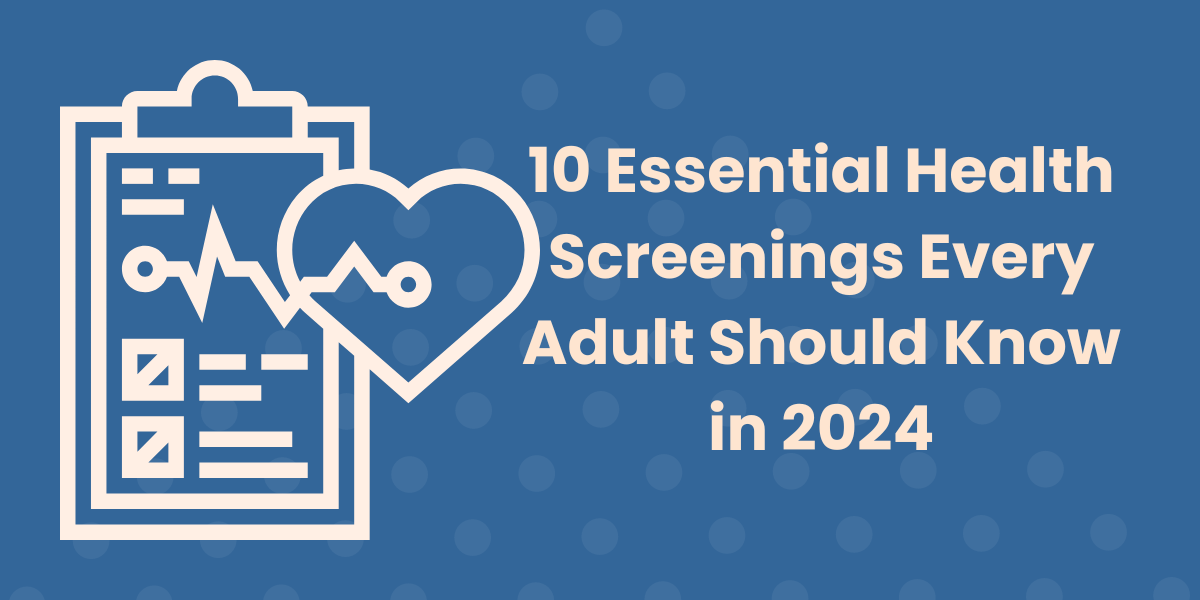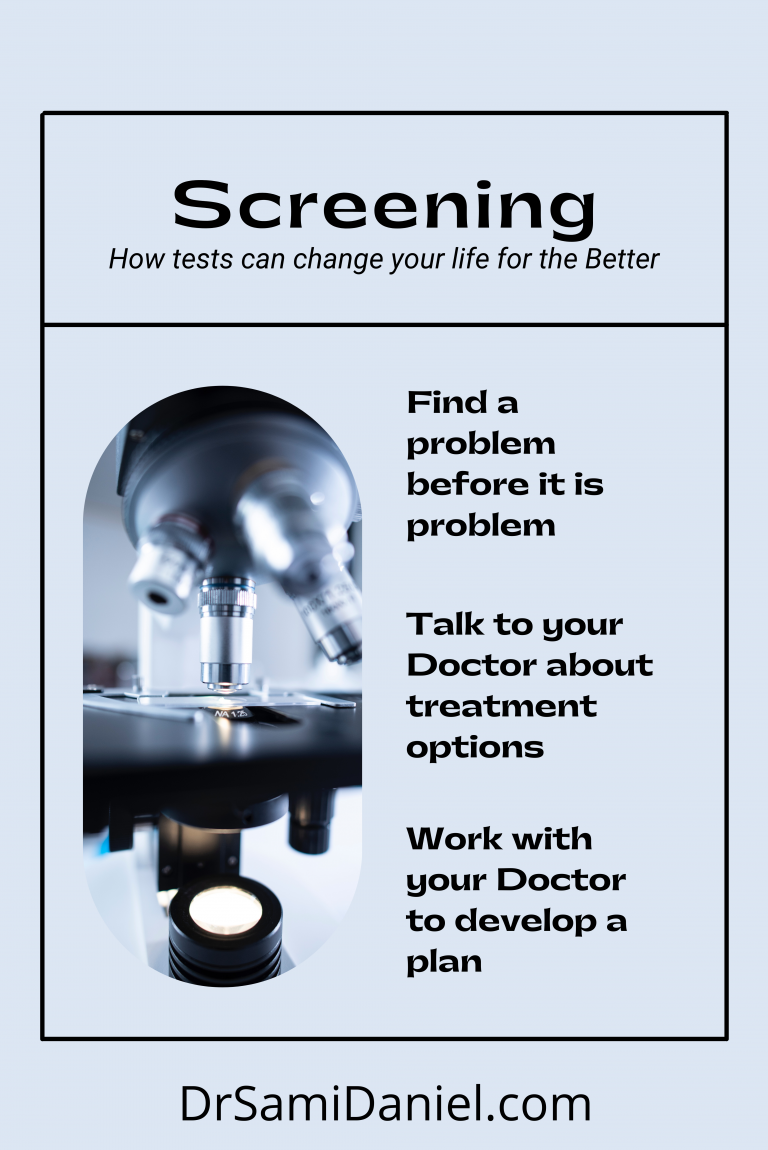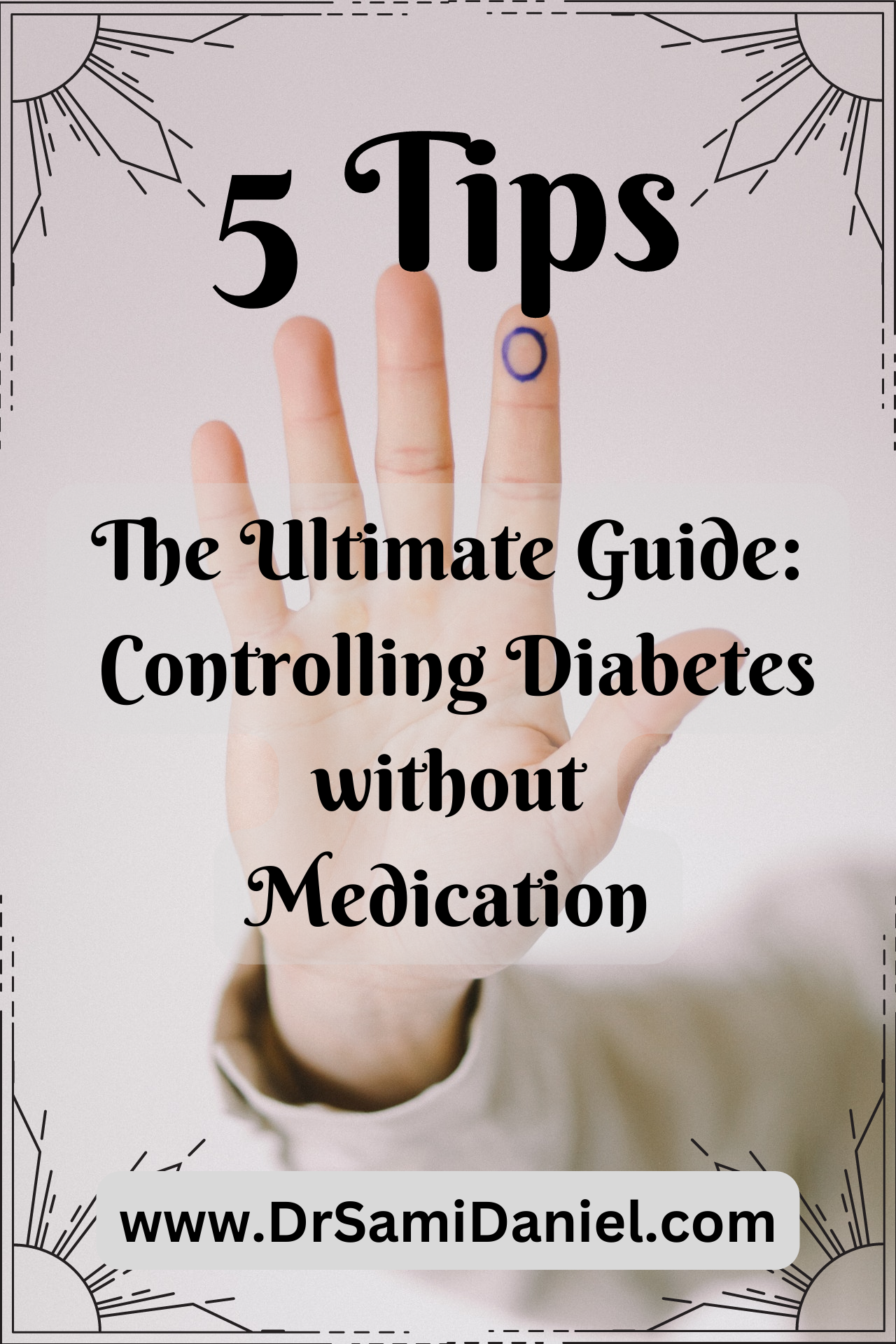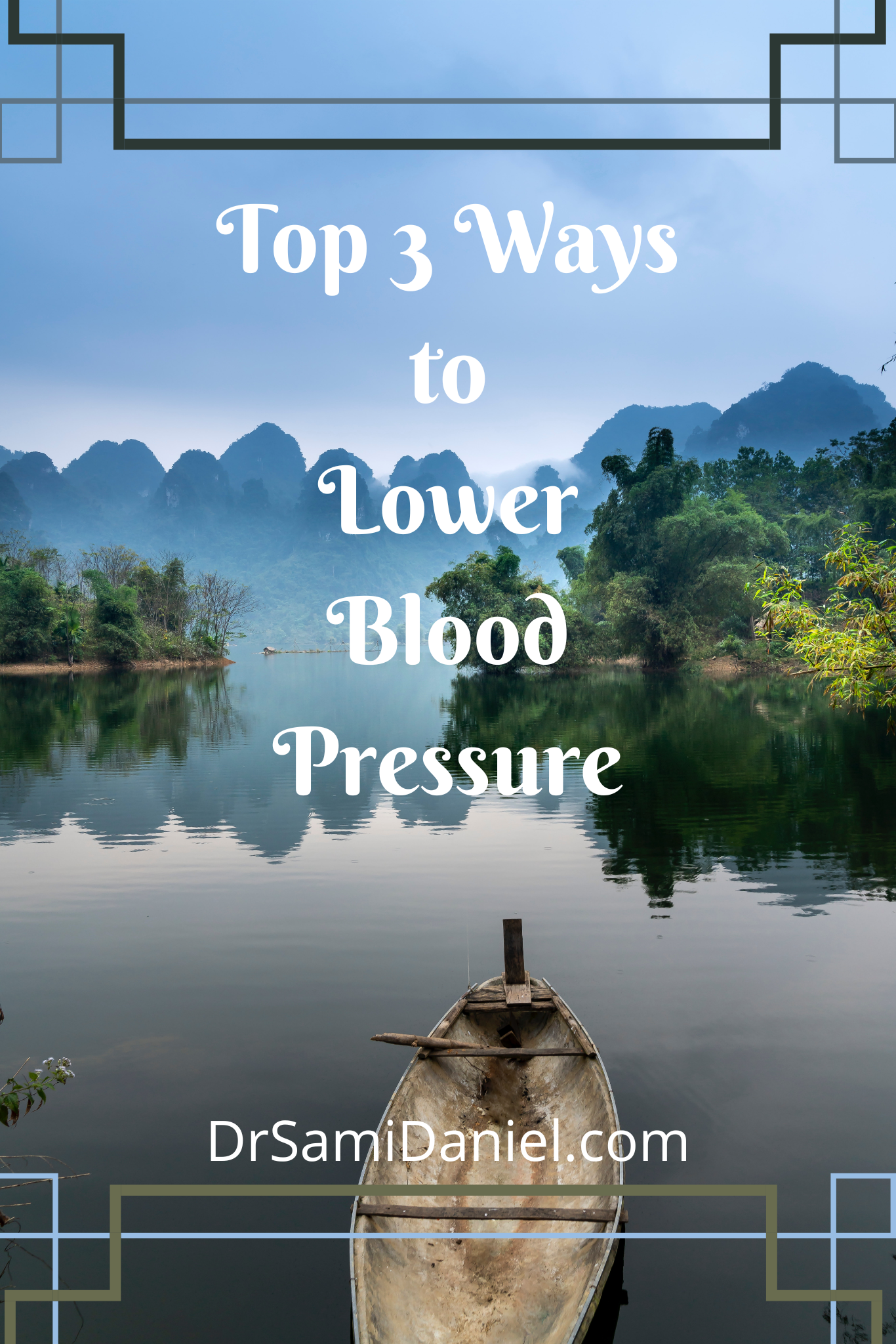10 Essential Health Screenings Every Adult Should Know in 2024
Did you know that a staggering 7 out of 10 deaths in the U.S. are caused by chronic diseases?1 Here’s the kicker: many of these could be prevented or caught early through regular health screenings. It’s time to take charge of your health!
I’ve seen firsthand how crucial these screenings can be. From my grandfather’s diagnosis that sent ripples through our family to patients blindsided by unexpected illnesses, I’ve learned that feeling fine doesn’t always mean you’re in the clear. That’s why I’ve compiled this list of the top 10 essential health screenings every adult should know about in 2024.
So, grab a cup of tea or coffee (I actually do both), and let’s dive into how you can stay one step ahead of potential health issues!
TL;DR:
Regular health screenings are crucial for early detection and prevention of chronic diseases. The top 10 essential screenings for adults in 2024 include:
- Cardiovascular health (blood pressure, cholesterol, ECG)
- Cancer screenings (colonoscopy, mammograms, skin checks)
- Diabetes and metabolic health tests
- Bone and joint health assessments
- Mental health check-ups
- Reproductive health screenings
- Vision health tests
- Lung health exams
- Thyroid function tests
- Hepatitis C screening
Don’t wait for symptoms to appear. Schedule these screenings with your doctor to invest in your long-term health and well-being.
Disclaimer
This article is for informational purposes only and does not constitute medical advice. Always seek the advice of your physician or other qualified health provider with any questions you may have regarding a medical condition.
Why Health Screenings Matter: Your First Line of Defense
Let’s face it – our lives are busy. Between work, family, and trying to maintain some semblance of a social life, it’s easy to put off doctor visits, especially when we’re feeling good. But here’s the truth: these check-ups can be lifesavers.
Health screenings are your first line of defense against chronic diseases. They help detect issues before they become serious, potentially saving you from unexpected diagnoses that can derail your life plans. I’ve seen many patients who felt great, living their best lives, only to be blindsided by a stage 4 cancer diagnosis or end up in the hospital with diabetic ketoacidosis.
The importance of early detection in preventing serious health conditions cannot be overstated. Regular screenings can save your life and your pocketbook from healthcare costs in the long run. It’s about being proactive rather than reactive when it comes to your health.
Remember, these screenings are not just routine check-boxes; they are powerful tools that can literally save your life. So, let’s break down the top 10 essential health screenings you should know about.
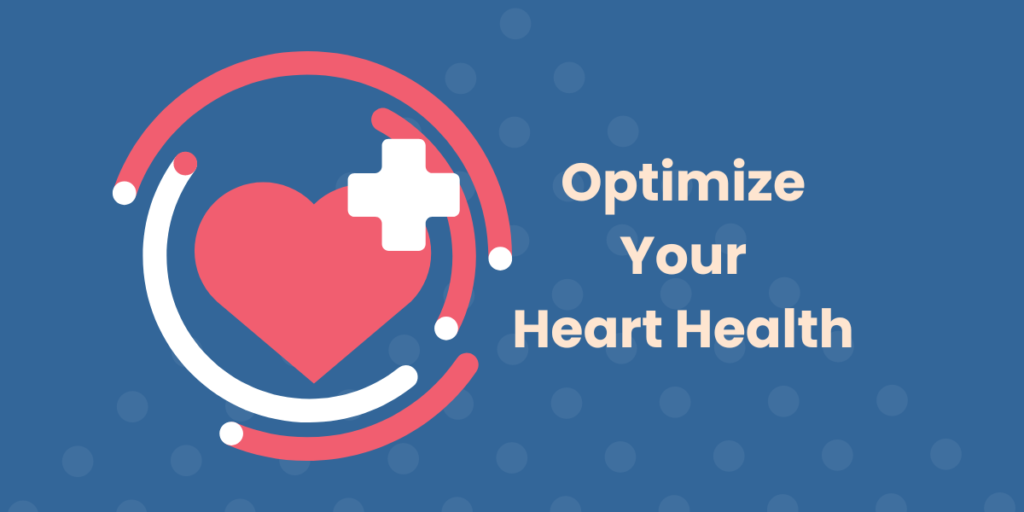
Cardiovascular Health: Keeping Your Heart in Check
When it comes to health screenings, cardiovascular health takes the top spot. Here’s why:
• Blood Pressure Screening: The Silent Killer’s Nemesis
Blood pressure is known as the “silent killer” for a reason. You might not know you have high blood pressure until you have a stroke or heart attack – at which point, it might be too late. Regular blood pressure checks are absolutely essential and, in my opinion, the number one health screen you should be doing on a daily basis.
By checking your blood pressure regularly, you’re giving it a voice. It is no longer silent, and you can heed its warning before trouble strikes. You can easily do this at home with an inexpensive blood pressure monitor.
• Cholesterol Tests: Understanding Your Lipid Profile
Understanding your cholesterol profile helps you gauge the health of your blood vessels. If your cholesterol levels are in the healthy range, your blood vessels are likely to be healthy too. This translates to a lower risk of heart attack and stroke.
• ECG and Stress Tests: When and Why You Might Need Them
These tools help us understand if your heart is currently experiencing any difficulties. Such issues usually indicate problems with the oxygen supply to certain areas of the heart. If there’s a problem with oxygen, the heart will have a hard time pumping blood efficiently.
Talk to your doctor about getting regular ECGs at least once every two years to ensure your ticker is finely tuned.
Cancer Screenings: Catching the Big C Early
Cancer screenings are next on our list, and for good reason. While we can’t screen for every type of cancer, we can check for some of the most common ones:
• Colonoscopy: Not Just for the 50+ Crowd Anymore
Colorectal cancer is the second most common cause of cancer death for both men and women. The heartbreaking part? It’s largely preventable. My uncle passed away needlessly from this disease, leaving behind a wife and two kids. He could have seen so much more by doing regular colonoscopies.
The latest USPSTF guidelines suggest that people should start colonoscopies from age 45. So if you’re 45 or older, talk to your doctor about your screening options.
• Mammograms and Breast Exams: What Every Woman Should Know
A family friend was diagnosed with an aggressive form of breast cancer. It was terrifying for her and her family. However, because they caught it early, they were able to take fast action. Today, she’s watching her kids go to college, actively participating in her community, and loving life!
Breast cancer is the most common cancer in women.2 Current statistics show that one in three women will be diagnosed this year. That’s why mammograms and breast exams are extraordinarily important.
Guidelines usually indicate a self-exam once a month, which supplements a yearly exam with your doctor. We typically recommend mammograms once a year, or once every two years if you’re over 55 with no personal or family history.
• Skin Cancer Screening: The ABCDEs of Melanoma Detection
Don’t forget about your skin! Regular skin checks can help detect melanoma and other skin cancers early when they’re most treatable.
What are you looking for? It’s easy as ABC!
- Asymmetry – If it looks wonky, have a doctor see it.
- Borders – Boundaries are blurred or uneven.
- Color – More than one color or different tones.
- Diameter – If it’s bigger than a pencil eraser, then have it checked out.
- Evolving – If you notice changes such as growth or bleeding, then have it checked as soon as possible.
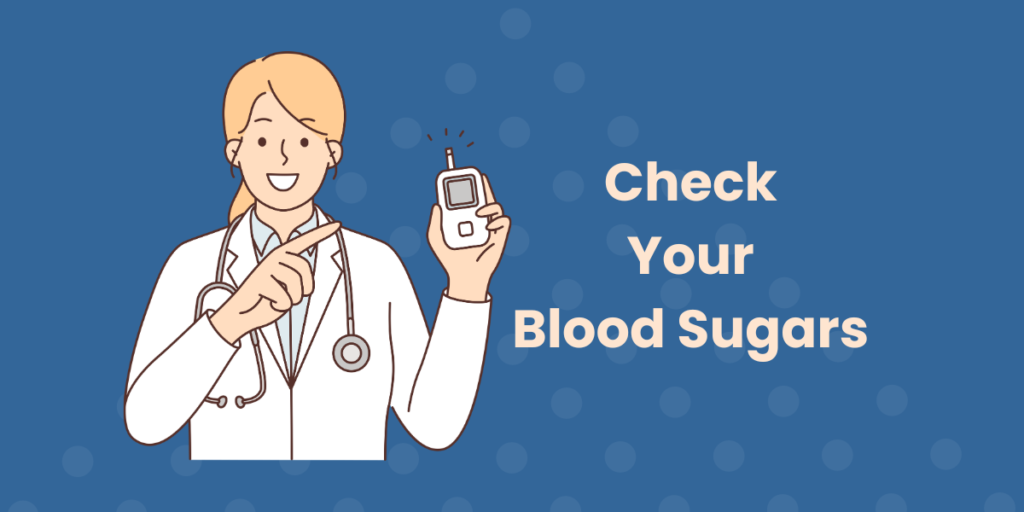
Diabetes and Metabolic Health: Sweet Talk About Sugar
Diabetes is a tricky disease. It can be an emergency, but it doesn’t have to be. Too often, people discover they have diabetes when it becomes an emergency. So, how do you know if you’re at risk?
• Fasting Blood Glucose Test: Are You at Risk for Diabetes?
The easiest test anyone can do is to check their blood sugar levels. You can pick up an inexpensive glucometer from the store and check your blood glucose level before eating breakfast or drinking that cup of coffee.
If your blood sugar level is over 126 mg/dL, even though you haven’t had anything to eat or drink for at least 8 hours overnight, you may have diabetes and should get checked out by your doctor.
• HbA1c Test: The 3-Month Blood Sugar Snapshot
Your doctor will also check your average blood sugar for the last 3 months using the HbA1c test. An A1C above 6.5% indicates diabetes, and you’ll need to discuss diet, exercise, and possible medications with your doctor.
• BMI and Waist Circumference: Simple but Telling Measurements
While not a direct measure of diabetes, a higher BMI and waist circumference increase your risk of developing the condition. A waist circumference of 40 inches (102 cm) in men and 35 inches (88 cm) in women is associated with higher risk.
Bone and Joint Health: Supporting Your Framework
Your bones and joints are literally the framework that keeps you moving. Here’s why screening for bone health matters:
• Bone Density Scans: When to Start Thinking About Osteoporosis
Osteoporosis increases the risk of bone fractures, which can have serious consequences, especially in older adults. In fact, about half of people 65 and older who fall and fracture their hip or femur will die within 12 months.3 So we’re not just preventing fractures by screening for osteoporosis – we’re preventing loss of life.
• Vitamin D Levels: The Sunshine Vitamin’s Crucial Role
Vitamin D is crucial not just for bone health, but also for your immune system, cardiovascular health, brain health, breast health, and mental health. Low vitamin D has even been linked to depression. If you live in an area with long winters or hot summers where sun exposure is limited, you might be at risk for vitamin D deficiency.
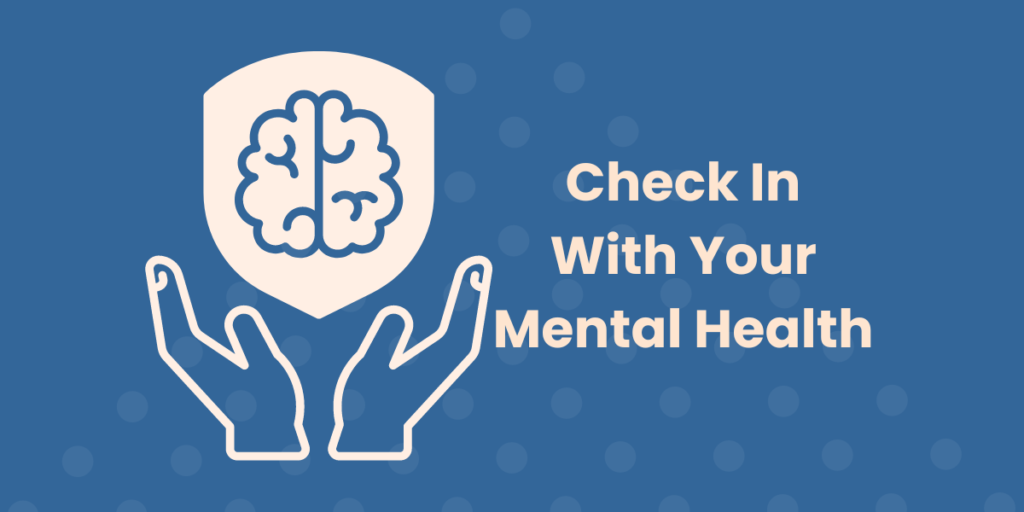
Mental Health Check-ups: Nurturing Your Mind
Mental health checkups are probably the most ignored yet important component of your health. Here’s why they matter:
• Depression Screening: It’s Okay Not to Be Okay
Doctors have valuable tools that can pick up on depression. We offer treatment not just to help you feel better, but because you have a purpose for being on this planet – and it’s not to walk around feeling depressed about everything.
I’ve been there myself. Everything seemed to fall apart – my career prospects and relationships both took a turn for the worse. For a while, I just went through the motions: work, home, eat, sleep, repeat. It took me over a year before I found my way out through practices like Qigong.
I truly feel that I got off easy. Many people have serious depression. If you are one of those people, remember this – you are not alone!
If you ever find yourself having suicidal or homicidal thoughts, please call or text the suicide hotline at 988 if you’re in the United States. It’s a wonderful initiative that covers the entire country, like calling 911 for emergency services, but specifically for mental health crises.4
• Anxiety Assessment: When Worry Becomes Overwhelming
Anxiety can be just as debilitating as depression. If you find yourself having panic attacks or unable to engage in daily activities due to worry, it’s time to talk to your doctor. It’s time to take comfort in the fact that there is help.
• Cognitive Function Tests: Keeping Your Brain Sharp as You Age
Keeping your brain sharp as you age can be increasingly challenging, especially with the prevalence of chronic diseases like diabetes or high blood pressure that rob you of your mind over time. Screening for cognitive function helps detect issues early, before any irreversible damage develops.
Reproductive Health: Gender-Specific Essentials
Reproductive health screenings are crucial for both men and women. Here’s what you need to know:
• Pap Smears and HPV Tests: Cervical Health Decoded
Ladies, I know the exam is uncomfortable, but it could save your life. Regular Pap smears can detect cervical cancer early when it’s most treatable.
• Prostate Exams: Breaking the Stigma for Men’s Health
Gentlemen, I know the exam can feel humiliating, but again, it saves lives. Regular prostate exams can detect prostate cancer early, significantly improving treatment outcomes.
This one can be done by a blood test first. If you are having urinary symptoms, ask your doctor to check for prostate specific antigen (PSA).
• STI Screenings: Because Love Shouldn’t Hurt
Another aspect of reproductive health is checking for sexually transmitted infections. Many people assume they’d know if something was wrong “down there,” but that’s not always the case. Many STIs can be asymptomatic, leading to complications if left untreated.
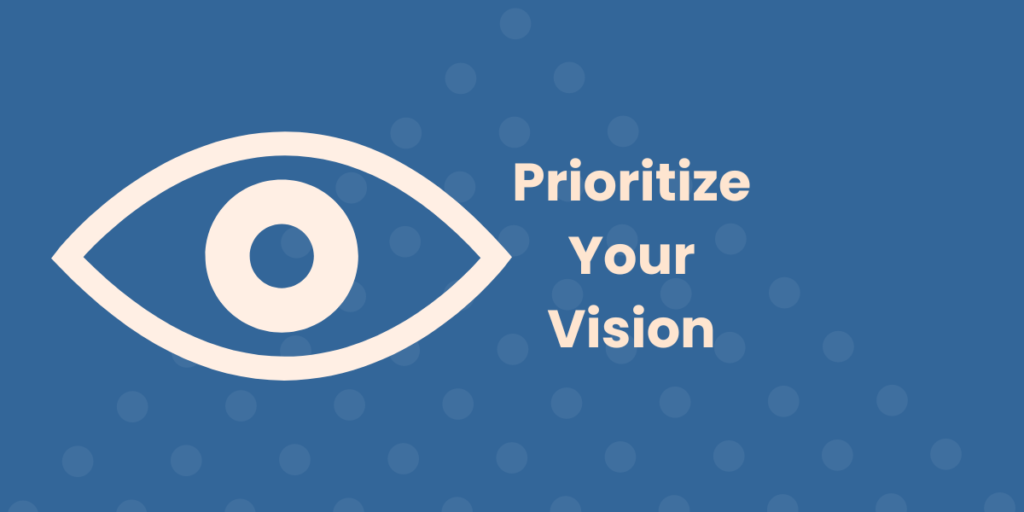
Vision: Protecting Your Sight
Your eyes are your windows to the world. Here’s how to keep them sharp:
• Comprehensive Eye Exams: More than Just Reading an Eye Chart
Looking into someone’s eyes isn’t just a window into their soul – it offers a peek into their physical health. A specialist can see whether your diabetes or high blood pressure is controlled just by examining your eyes.
If they are not well controlled, these chronic conditions can damage your eyes and lead to permanent vision loss.
So get them checked at least once per year.
• Glaucoma Screening: Preserving Your Peripheral Vision
Glaucoma is one of the most preventable causes of vision loss if caught early. But if visual symptoms develop, the damage is often permanent. The best way to prevent it is to find it before symptoms occur.
Again, regular eye exams once per year will identify the problem before permanent damage sets in.
Lung Health: Breathe Easy with These Tests
Your lungs are essential for getting oxygen to every part of your body. Here’s how to keep them healthy:
• Spirometry: Measuring Your Lung Function
This simple test measures how much air you can breathe in and out and how quickly you can do it. It’s particularly important if you have a history of smoking or exposure to lung irritants.
• Low-Dose CT Scans: For Smokers and Ex-Smokers
If you’re a current or former heavy smoker, your doctor might recommend a low-dose CT scan to screen for lung cancer.
• Sleep Apnea Screening: Because Snoring Isn’t Always Harmless
While the USPSTF doesn’t necessarily see enough evidence to support regular screening for sleep apnea, your doctor may consider a sleep study if you snore, feel fatigue, and have high blood pressure.5 Sleep apnea can lead to serious health issues if left untreated.
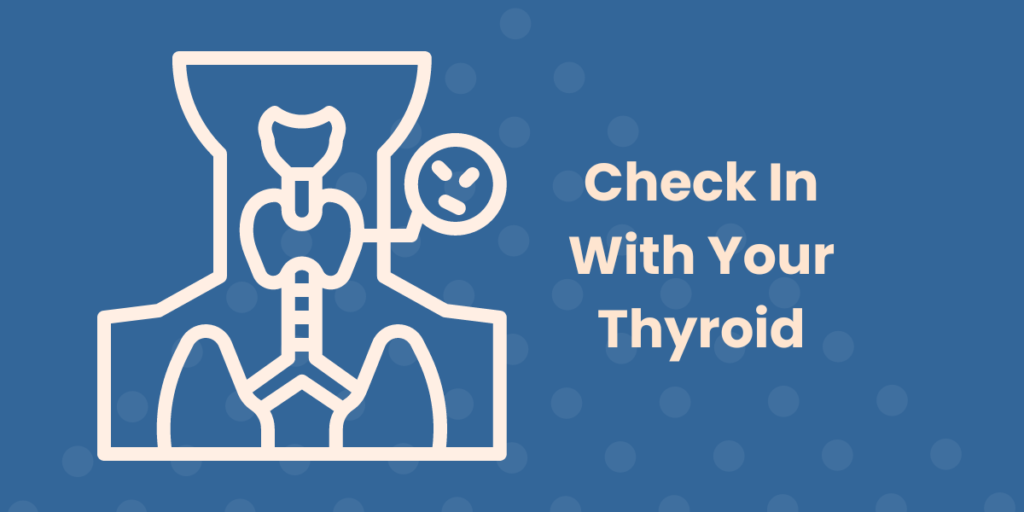
Thyroid Function: The Little Gland with Big Impact
Nobody pays attention to their thyroid gland until they start packing on the pounds, feel sluggish, and cannot focus on the job. This gland plays a crucial role in regulating your metabolism, heart rate, and more. A simple blood test can check your thyroid function and detect issues like hypothyroidism or hyperthyroidism and provide effective treatment.
Hepatitis C Screening: A One-Time Test
If you are at least 18 years of age, the USPSTF recommends a one-time screening for Hepatitis C.6 Many people with Hepatitis C don’t know they’re infected, and early treatment can prevent liver damage and failure.
Hepatitis C was once incurable. Now we have medications to help rid the world of this insidious disease. Check once and have the peace of mind that your liver is in good health.
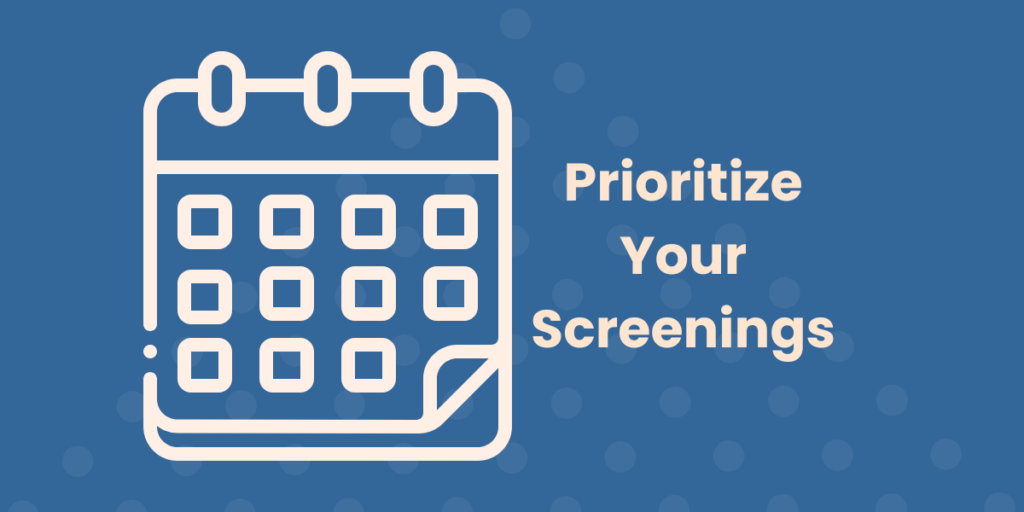
Making Screenings a Priority: Your Action Plan
These screenings are important because they can save and enhance the quality of your life! So how do you take action?
- Schedule your check-ups.
- Annual exams once per year.
- People with diabetes once every three months.
- Come prepared with questions for your doctor.
- Write down any concerns or questions you have.
- Be sure to review your medications and understand:
- What they do for your health.
- How to take them effectively.
- Create a screening calendar: Keep track of when you need different screenings.
- Colonoscopy – once every 10 years if everything is normal.
- Pap smear – once every 3 years or once every 5 years with HPV co-testing.
- Mammogram – once every 1 to 2 years.
- Prostate – if there are urinary symptoms like frequent nighttime urination.
- Glaucoma – once every year.
- Diabetes eye exam – once every year assuming everything is normal.
- HbA1C checks – once every 3 months.
- Blood pressure checks – once daily at home and once every 3 months with your doctor.
- Thyroid checks – once every 6 weeks.
- Vaccines
- Stay informed: Keep up with the latest health recommendations.
- Encourage loved ones: Share this information with friends and family.
Remember, these screenings are not just routine check-boxes – they are powerful tools that can literally save your life. By staying proactive and making these screenings a priority, you are investing in your long-term health and well-being.
Conclusion:
In my opinion, these are the top 10 essential health screenings every adult should know about in 2024! I hope this guide has helped you understand why these screenings are so crucial and how they can benefit you.
The key here is prevention. If you wait for symptoms to appear, then it may be too late.
Do not wait for symptoms to appear – take control of your health today!
Schedule your next screening, have an open conversation with your healthcare provider, and encourage your loved ones to do the same. Your future self – and your family – will thank you for it!
Remember, your health is your most valuable asset. Treat it that way by staying on top of these essential screenings to enjoy a healthier, happier you in 2024 and beyond!
References:
- Safeguarding Americans’ Health | CDC Foundation. (n.d.). Www.cdcfoundation.org. https://www.cdcfoundation.org/safeguarding-americans-health#:~:text=Chronic%20diseases%20are%20responsible%20for
- Cancer Facts for Women | Most Common Cancers in Women. (n.d.). Www.cancer.org. https://www.cancer.org/cancer/risk-prevention/understanding-cancer-risk/cancer-facts/cancer-facts-for-women.html#:~:text=Breast%20cancer%20is%20the%20most
- Peter Attia MD. (2024, May 29). The benefits of exercise on fracture risk and mortality in old age | Peter Attia and Mike Joyner. YouTube. https://www.youtube.com/watch?v=VaezogYjbJw
- SAMHSA. (2023, April 24). 988 Suicide and Crisis Lifeline. Www.samhsa.gov. https://www.samhsa.gov/find-help/988
- Recommendation: Obstructive Sleep Apnea in Adults: Screening | United States Preventive Services Taskforce. (n.d.). Www.uspreventiveservicestaskforce.org. Retrieved July 14, 2024, from https://www.uspreventiveservicestaskforce.org/uspstf/recommendation/obstructive-sleep-apnea-in-adults-screening#:~:text=There%20is%20inadequate%20evidence%20on%20the%20benefits%20of%20screening%20for
- Recommendation | United States Preventive Services Taskforce. (2020, March 2). Www.uspreventiveservicestaskforce.org. https://www.uspreventiveservicestaskforce.org/uspstf/recommendation/hepatitis-c-screening

